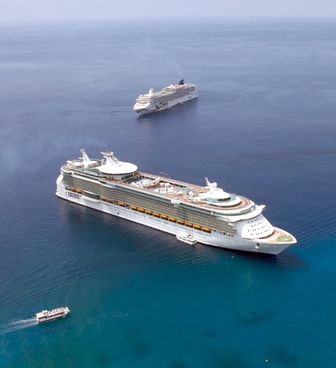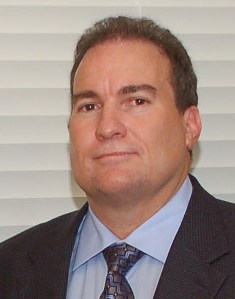Archive for October 27th, 2009

Port won’t cost Cayman
 (CNS): The development of the multi-million dollar cruise berthing facility in George Town Harbour won’t cost the Cayman tax payer a single cent, the port boss has said. Stefan Baraud who was appointed as chairman of the port authority in the wake of the General Elections in May has been a driving force behind getting the facility built. With no money in local coffers, however, the goal has been to pay for the facility with outside finance, and Baraud promises that he and the committee he has been working with have achieved that goal. With four potential developers left in the running, the announcement will be made very soon and work could start within six months, he says.
(CNS): The development of the multi-million dollar cruise berthing facility in George Town Harbour won’t cost the Cayman tax payer a single cent, the port boss has said. Stefan Baraud who was appointed as chairman of the port authority in the wake of the General Elections in May has been a driving force behind getting the facility built. With no money in local coffers, however, the goal has been to pay for the facility with outside finance, and Baraud promises that he and the committee he has been working with have achieved that goal. With four potential developers left in the running, the announcement will be made very soon and work could start within six months, he says.
Speaking to CNS from St Lucia, Baraud said that in choosing the right investors the committee had followed very specific criteria relating to the developer’s financial strength, experience in similar projects, their design ideas and their ability to move quickly once they sign the deal. One of the key requirements is that whoever is finally awarded the contract must agree to use Caymanian contractors and workers in the development of the upland component of the project.
“One of the man things is that the cruise berthing facility has to benefit Caymanians during its development, as well as once it’s constructed,” Baraud said. “Whoever wins the bid will be required to contract local people and firms to develop the land side.”
He said that while the developers would probably have their own technicians and experts when it came to developing the pier and marine part of the project, as far as the development of the retail element was concerned there are plenty of local contractors and heavy equipment operators that are capable of doing that work, and the goal was to ensure that they would be part of this project.
Bids for the project had come from all over the world, Baraud noted, as far afield as the Middle East and Scandinavia, but whichever contractor eventually took on the development, the port itself would still belong to Cayman. The port chair explained that under the terms of the private partnership the developer would make its money by the earnings from the cruise lines that would berth at the new piers and from the rents gained from the retail units, which, he said, would be leased to local companies.
“This development will beat no cost to the Cayman Islands government; there will be no buy backs or 25 year leases as has been suggested,” he added. “The government is not giving any guarantees to anyone for this; it will be financed by private money and any suggestions that we will be paying down the line are nonsense.”
The proposed development of cruise berthing in George Town has always had its critics, in particular from those quarters of the community concerned about the environmental impact. Although it seems to be widely accepted (though not seen by everyone as a reason to do further harm) that the reefs in the harbour have already been undermined from cruise ship anchors, the impact of a pier development on Seven Mile Beach has yet to be clarified and there are real fears that it could suffer.
Baraud said that an environmental impact assessment (EIA) would be conducted to examine that and would start very soon. He said that despite recent fears that an EIA would not be done, he said that while a long and arduous study was not required, government still intended to undertake that assessment. He said it was important to be sure that Seven Mile Beach would not be damaged as a result of what is seen by those involved in Cayman’s cruise tourism as essential in order to protect the future of the sector.
During the previous administration a memorandum of understanding was signed with Atlantic Star to explore the possibility of developing cruise berthing facilities as well as a new cargo port in George Town further north of the existing site. That project, which met with considerable opposition, has since been shelved and plans for the development of the existing cargo area have not yet been detailed. Leader of Government Business and Minister for Tourism McKeeva Bush has, however, made it known that he is interested in pursuing a public private partnership to develop a commercial port facility in the eastern districts, a proposal which has also met with opposition.

Radio station introduces real time traffic report
 (CNS): Many Caymanians probably never thought that the day would come when drivers on the island would need to tune in to a traffic report to avoid jams and snarl ups. However, as the number of cars on Grand Cayman increases year on year, despite the recession, traffic woes are becoming part of everyday life and one local radio satiation has introduced a real time traffic bulletin which is broadcast twice daily from Monday to Friday during the islands’ commute.
(CNS): Many Caymanians probably never thought that the day would come when drivers on the island would need to tune in to a traffic report to avoid jams and snarl ups. However, as the number of cars on Grand Cayman increases year on year, despite the recession, traffic woes are becoming part of everyday life and one local radio satiation has introduced a real time traffic bulletin which is broadcast twice daily from Monday to Friday during the islands’ commute.
The “dms Real-Time Traffic” report is being broadcast during Cayman’s rush hours of 7:15 to 8:45 AM and 4:30 to 6:00pm on all of dms’ stations. Brad West and
“We have six cameras installed to cover key
There are presently
While Cayman’s traffic woes don’t yet warrant a helicopter or flying eye camera on a fixed wing aircraft common now in majorcities around the world Kellyman said additional cameras will be installed in the near future, in order to provide more coverage on West Bay Road and within the Tropical Gardens area.
Matt Brown dms’ traffic correspondent said he knows how much navigating the snarl ups and jams can help. “As a young Caymanian in the workforce, I have learned to appreciate how much those few extra minutes can help out during a hectic morning, and being in the know about
Operations Manager Ben Maxwell said dms Broadcasting was constantly seeking new services for listeners and hoped this would make the ride to and from work a little easier. “Keep your dials tuned to your favourite dms Broadcasting station for ‘dms Real-Time Traffic’ and other upcoming events,” Maxwell added.

France’s EU spending spree
 (BBC): France’s six-month presidency of the EU in 2008 was one of the most expensive in history, costing about one million euros (£907,000) daily, officials say. The French Court of Accounts put the total cost of the July-December 2008 presidency at 171m euros. Usually the rotating presidency of the EU costs 70-80m euros. Only Germany has previously spent as much on it as France. The Union of the Mediterranean summit in Paris alone cost 16.6m euros. “The scale of this summit, the irregular nature of its procedures and its massive impact on public finances together make this summit a kind of record," the court report said.
(BBC): France’s six-month presidency of the EU in 2008 was one of the most expensive in history, costing about one million euros (£907,000) daily, officials say. The French Court of Accounts put the total cost of the July-December 2008 presidency at 171m euros. Usually the rotating presidency of the EU costs 70-80m euros. Only Germany has previously spent as much on it as France. The Union of the Mediterranean summit in Paris alone cost 16.6m euros. “The scale of this summit, the irregular nature of its procedures and its massive impact on public finances together make this summit a kind of record," the court report said.

New transport boss arrives in turbulent times
 (CNS): The Public Transport Unit (PTU) will open for business at a new location and with a new director next month but the new man at the helm comes to office at a time of disquiet among bus drivers who are less than happy about their accommodation. Former Royal Cayman Islands Police Service (RCIPS) traffic cop manager Inspector Durk Banks will be faced with a petition when he takes up his new job from the drivers who are disgruntled over what they were told was a temporary move of their depot which is becoming increasingly permanent.
(CNS): The Public Transport Unit (PTU) will open for business at a new location and with a new director next month but the new man at the helm comes to office at a time of disquiet among bus drivers who are less than happy about their accommodation. Former Royal Cayman Islands Police Service (RCIPS) traffic cop manager Inspector Durk Banks will be faced with a petition when he takes up his new job from the drivers who are disgruntled over what they were told was a temporary move of their depot which is becoming increasingly permanent.
Earlier this week drivers were in the news complaining that they were promised a return to their terminal by the George Town library once the new development there was complet but that has not happened. Drivers say they are disappointed that the area intended as their new bus station is being used as a parking lot and they have not been allowed to return. Citing a loss in revnue of as muchas 75% the drivers say they are struggling to keep their head above water.
“I’m very pleased that my ministry has made this move a priority,” he said. Minister with responsibility for “The new office provides a better working environment for staff, and adequate accommodation to serve the public. I extend a warm welcome to Mr. Banks and look forward to the expertise he will bring to the unit.”
The Public Transport Unit was established to manage Cayman’s public transportation system, which includes taxies, tour vehicles, omnibuses, church and school buses, limousine operators, shuttle/courtesy vehicles and water sports vessels.
Mailing address: P.O. Box 10432, Grand Cayman KY1-1004 Cayman Islands; Physical Address: Unit 17, 2nd Floor, Rankin’s Plaza, 21 Eclipse Drive, George Town, Grand Cayman

‘Fat clubs’ thriving in US
 (Telegraph): American nightclubs catering specifically for fat people are proving a hit with plus-sized partygoers looking for acceptance. Venues are aimed at people who may be made to feel unwelcome at certain fashionable nightspots because of their size. Such clubs are a relatively new development, with a handful scattered across California, mainly in coastal cities such as San Diego and San Francisco. Lisa Marie Garbo, who opened Club Bounce five years ago, said she did it for herself and others who were tired of being "the only fat girl at the local nightclub".
(Telegraph): American nightclubs catering specifically for fat people are proving a hit with plus-sized partygoers looking for acceptance. Venues are aimed at people who may be made to feel unwelcome at certain fashionable nightspots because of their size. Such clubs are a relatively new development, with a handful scattered across California, mainly in coastal cities such as San Diego and San Francisco. Lisa Marie Garbo, who opened Club Bounce five years ago, said she did it for herself and others who were tired of being "the only fat girl at the local nightclub".
Crime toll climbs as burglars hit business premises
(CNS): Two more businesses have fallen victim to Cayman’s crime wave. Police said they have responded to two business premises burglaries that had taken in George Town and in Bodden Town during the night of 26 October. At around 7:00am this morning (27 October) the owner of Cayman Pet Paradise in Bodden Town arrived at her business to find that the front door had been pried open and $55.00 in petty cash, along with some coins, were missing. Meanwhile, in George Town two flat screen TVs, liquor and cash were taken from the Mango Tree Restaurant by overnight burglars.
At about 7:05am the owner of the George Town Restaurant and bar found that the front door had been tampered with and entry gained. The TV’s are described as one 63” Samsung flat screen and the other a 32” Sharp.The incident is being investigated by George Town CID officers. Officers from Bodden Town CID are currently investigating the break-in at Cayman Pet Paradise
Anyone with information of crime taking place can pass it on to police in a number of ways; people can speak with an officer they know and trust, they can reach George Town detectives on 949-4222, they can leave information on an anonymous voicemail service by calling 949-7777 or they can call Crime Stoppers on 800-8477 (TIPS). All persons calling Crime Stoppers remain anonymous, and are eligible for a reward of up to $1000, should their information lead to an arrest or recovery of property/drugs.
Dolphin slaughter satirised
(Huffington Post): With this year’s release of the stunning and horrifying documentary, "The Cove" new light has been shed on the tradition of slaughtering dolphins once a year in the National Park at Taiji, Wakayama in Japan. "South Park"’s creators, never ones to shy away from controversy, decided to take on the practice in an episode premiering tomorrow night on Comedy Central. In the preview below we see the boys swimming with dolphins at the Denver Aquarium, and a huge number of Japanese men coming to kill the animals.

Tax changes needed in UK
(Times Online): The European Commission’s alternative investment fund management directive, which aims to locate hedge funds in Europe, has unsettled hedge fund managers. If the UK does not develop a competitive onshore regime, it will miss out on money, taxes and jobs. The prospect of tax rises and the spectre of the directive are placing opposing pressures on the European Union’s hedge fund managers. The impulse may be to move out of the EU to a jurisdiction with lower taxes, but regulatory change may mean that managers will be at a competitive disadvantage unless they stay put or bring their products onshore.
Cayman Finance chair takes PR fight to Washington
(CNS): Appearing at a special conference on Barack Obama’s door step, Anthony Travers was debunking the still pervasive myths regarding offshore financial service centres last week to promoteCayman’s own financial sector. Speaking at the CATO Institute during a seminar focusing on the benefits of tax competition, the chair of Cayman Finance illustrated why the US President, Gordon Brown and Senator Carl Levin are wrong about Cayman. Travers pointed out the fact that the IRS has had legal access to accounts in Cayman for a decade but has only ever conducted 20 investigations to no avail.
Talking about the wide mischaracterizations about Cayman, he explained why the jurisdiction is far from ideal for would-be tax evaders.
“To describe the Cayman Islands as a jurisdiction where tax evasion could be conducted is wrong,” he said. “Whilst Cayman law maintains a legitimate right to privacy, its confidentiality statue provides a clear gateway to enable tax transparency and specifically with effect from 2001, when it entered into the least reported on tax treaty with the United States.”
Travers added that in both medical and legal terms people would be insane to use Cayman as a place to evade taxes. “The IRS has full authority to access all accounts,” he observed. “A power of which it should be reminded since as it has exercised that power (in over decade) in relation to the now famous $1.83 trillion of bank deposits and interbank bookings on fewer than twenty occasions times with no discerning or reported benefit to the US treasury as a result.”
He went on to explain that Cayman also signed up to the European Union Savings directive in 2003 which created a proactive reporting obligation on any European residents bank account which was revealed to be a mere $35million on account fiscally insignificant in the grand scheme of financial things.
Travers detailed the unilateral mechanism which followed enabling twenty countries to have legal access for tax purposes, but it was effectively disregarded by the OECD. He said Cayman then had to sign several more treaties which amounted to the same thing in order to satisfy the OECD’s interpretation of what it perceived as the right document.
The Cayman Finance chair, who has made it his mission over the last six months to change global perceptions of Cayman’s Financial sector, got down to what he has argued is the fundamental problem with the OECD and the onshore jurisdictions. He explained that the comments made by Obama about Ugland House, Gordon Brown’s position that the world would be safer if tax havens didn’t exist and the Levin Bill were all part of a wider issue which was a growing objective by OECD countries for a global flat high rate tax.
Travers noted that a major misconception by the US and European nations was that the money which centralized in places like the Cayman Islands was somehow theirs, which he said was not true as it came from international global markets. More importantly, he explained that the money that came to Cayman in the shape of hedge funds, for example, found its way back to the onshore sector’s economies.
“At the height of the hedge fund market at the end of 2008, assets under management amounted to about $3.6 trillion of which 65% was invested back into the United States by and through US fund managers,” he explained. “The misperception that drives Senator Levin’s proposed legislation is that somehow this originally is US money … that is not the case.”
Explaining why people used Cayman, he said it was not to evade taxes but because the jurisdiction was economically efficient, it was a centre for expertise and had a reputation as anincubator for sophisticated financial products. He said Cayman had a superior corporate law which enabled firms to access international capital markets which explained things like Ugland House (Travers’ own former office). Taking Obama to task, not for the first time, Travers said, “It is superficial in the extreme to criticise that structuring because it does not resemble a car factory in Michigan,” he said.
The mischaracterisation of Cayman was driven by the desire for a global one size fits all tax – he said the offshore jurisdictions were not harbouring “weapons of tax destruction”, so what he called the tax competition argument to stop the movement of money from one jurisdiction to another was all that the onshore jurisdictions had left against places like the Cayman Islands.
He said no one could say what this top rate of tax might be. Travers recalled the UK high level of tax in 1970s when he left (to make his fortune) it had reached 97%.
Travers warned that not understating what offshore financial centres do created erroneous tax policies which in the end would harm the US. Travers explained that on shore jurisdictions needed to address their own tax polices as their perceived missing taxes could not be found in jurisdictions such as Cayman. “There is not pot of gold in the Cayman Islands to assist the US treasury,” Travers added.
Jack scorned Cabinet
(CNS): The questionable attitude of this and previous governors, including their lack of respect towards the elected officials in Cabinet, was revealed by at least four members of the Legislative Assembly last week. The most recent former Cabinet members, Anthony Eden, Arden McLean and Alden McLaughlin, all suggested that by virtue of their elected status the current governor viewed them with distrust. Ezzard Miller, who served in Ex-Co back in the 1990s, added that previous governors had also displayed arrogance and disdain towards those elected by the people.
During the debate following the North Side MLA’s proposed motion that the CI government sue the FCO and the governor, Stuart Jack, to recover the costs of Operations Tempura in the British courts, the way that the UK’s representatives had treated Cabinet members elected by the people of the Cayman Islands was raised in public for the first time. The MLAs told the House how they felt the governor had treated them as though they were criminals by the virtue of their elected position and that he made it obvious he did not trust them or consider their opinions to be of any value.
The current governor as well as previous holders of the office were criticised for their derision towards elected members and how the prevailing attitude was that ‘governor knows best’ and they knew nothing, the members said.
Anthony Eden, the former minister for health, spoke of how Cabinet members were summoned to the governor and told about Operation Tempura some six months or more after the fact, without any previous consultation. Eden said that the governor had not even shared the information that foreign police officers were in the Cayman Islands with leader of the country.
Arden McLean, the PPM member for East End who also served in the previous Cabinet, said that the governor had treated him and his fellow elected members as though they were a “bunch of thieves” just by virtue of the fact that they were elected to office. He said that during the progress of Operation Tempura, the Cabinet was never informed as had been promised and the elected officials were learning about the investigation through the media.
During a passionate speech, the East End MLA said that now he was no longer in government he could speak freely and wanted to get things off his chest. “In my opinion he was part of a conspiracy to destroy my country,” he declared. “This is the people’s house; it does not belong to the governor.”
McLean revealed how the governor would constantly tell Cabinet members about good governance over and over again and how he regarded the elected members as “the biggest bunch of thieves” who “didn’t know what was good for our own country”.
He said the problem was that the governors who were appointed to serve in Cayman came with preconceived ideas and regarded the local people as mere “natives”. He said they seemed unaware that the Cayman Islands is a sophisticated country and the world’s fifth largest financial centre. He said governor’s came “believing they had to lead us out of the wilderness”.
His George Town colleague, Alden McLaughlin, who during his time in Cabinet was a more open critic of the governor and in particular the overriding power of that office, revealed that evenhe was shocked when soon after this governor’s arrival he made it clear that he distrusted the elected officials.
“One of my greatest disappointments as a minster was when I understood that the governor had no trust in the elected members,” he said, adding that this was not the partnership he had believed it would be. McLaughlin said the governor was not entitled to disregard what elected members had to say in the way he had. “Just because you get elected to office you are not converted to a criminal,” McLaughlin observed. “How do we get to the point where the governor is without flaw, but because we are elected we cannot be trusted?” he asked.
He said the distrust was part of a much bigger picture, which was to do with Cayman’s relationship with the UK and the overall change in that relationship. As Cayman became increasingly sophisticated and a competitive nation on the international financial stage, the UK which had once looked out for Cayman was now in competition with it and worried far more about contingent liabilities to it than the welfare of Cayman and its people. McLaughlin said while the new Constitution restricted the governor in some areas, ultimately the overall picture had changed little and Cayman would have to face independence eventually if it wanted to control its own destiny as it was clear things were likely to get worse. McLaughlin said he believed independence would happen in his lifetime.
Miller, an open supporter of independence who had raised the motion in the first place, said that he too had “experienced the arrogance, disdain and condescension of Her Majesty’s representatives in Cabinet.” He described one as coming to cabinet “in a drunken stupor and drooling over cabinet papers”. Miller criticised another governor who the North Side MLA said had dismissed his suggestion to place five hundred names in Heroes Square for the centennial celebrations as he would not be able to find so many Caymanians worthy of the honour.
He said that governors come to the Cayman Islands believing they are experts in everything. “If one of us natives is brave enough to question them, we are ridiculed,” he said, describing the English manner in which the disdain was dished out.
Miller said his motion was about showing the UK and its representatives that the members were prepared to stand up for their country and the people. “We know what is best for Cayman," said Miller. “We are not idiots.”